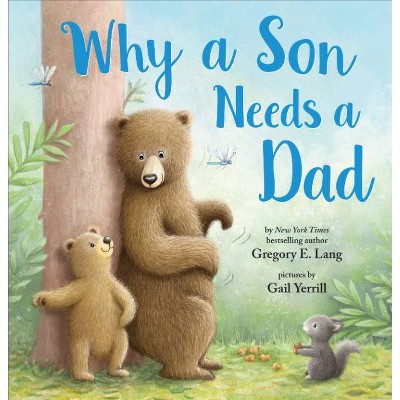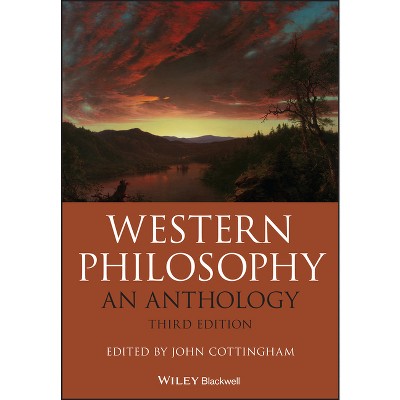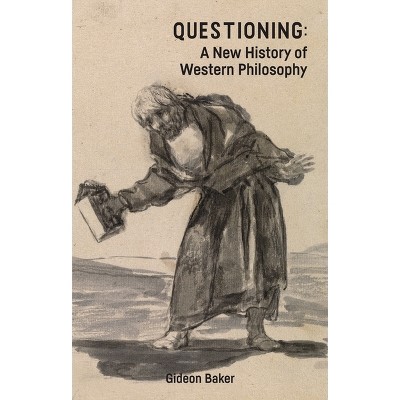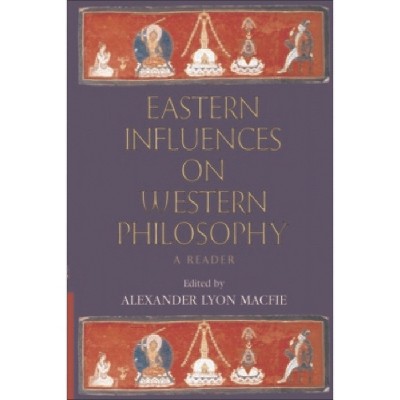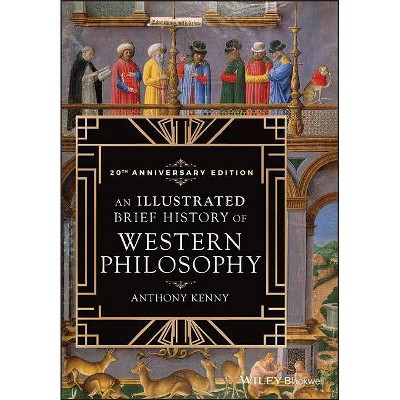The Basics of Western Philosophy - by Eugene Kelly (Hardcover)

About this item
Highlights
- The Basics of Western Philosophy is an introductory work for students and the general reader.
- About the Author: EUGENE KELLY is Professor of Philosophy, New York Institute of Technology.
- 312 Pages
- Philosophy, History & Surveys
Description
About the Book
The Basics of Western Philosophy is an introductory work for students and the general reader. The book is divided into two parts. Part I examines the process of philosophical discourse, including discussions of some of its greatest practitioners, elementary techniques of logical analysis, and a sketch of the history of philosophy from its earliest beginnings among the ancient Greeks to the current day. Part II considers the major problems of philosophy: metaphysics, epistemology, ethics, social philosophy, philosophy of religion, and philosophical anthropology.
Each chapter focuses on a set of philosophical concepts that are central to a specific idea in philosophy, while offering insights into philosophical questions relevant to the central problem. The ideas of the great philosophers regarding that problem are presented in detail and subjected to analysis and criticism. Frequent sidebars contain background information or capsule biographies of the philosophers. Included are an extensive bibliography, an index, illustrations, and a timeline that marks the dates of philosophers and schools of philosophy in each era.
Book Synopsis
The Basics of Western Philosophy is an introductory work for students and the general reader. The book is divided into two parts. Part I examines the process of philosophical discourse, including discussions of some of its greatest practitioners, elementary techniques of logical analysis, and a sketch of the history of philosophy from its earliest beginnings among the ancient Greeks to the current day. Part II considers the major problems of philosophy: metaphysics, epistemology, ethics, social philosophy, philosophy of religion, and philosophical anthropology.
Each chapter focuses on a set of philosophical concepts that are central to a specific idea in philosophy, while offering insights into philosophical questions relevant to the central problem. The ideas of the great philosophers regarding that problem are presented in detail and subjected to analysis and criticism. Frequent sidebars contain background information or capsule biographies of the philosophers. Included are an extensive bibliography, an index, illustrations, and a timeline that marks the dates of philosophers and schools of philosophy in each era.Review Quotes
"This is a good book and it performs well when considered against its intended market."-Practical Philosophy
?[K]elly's work provides a straightforward and complete introduction to the field of philosophy in the Western world. It would not be difficult to imagine reading The Basics of Western Philosophy cover to cover in order to gain a useful overview of Western philosophy. It might even serve beautifully as a textbook for an introductory philosophy course. The work belongs on the shelves of academic libraries, high school libraries, and public libraries that wish to provide such an educational resource to their patrons. In any case, one might consider whether this work is more appropriate to a circulating collection than on the reference shelf.?-Reference & User Services Quarterly
?More than a mere survey, this is a work of philosophical comprehension limited only in its compass because of its intended audience (high school and undergraduate students as well as the general public). Highly recommended.?-Library Journal
"ÝK¨elly's work provides a straightforward and complete introduction to the field of philosophy in the Western world. It would not be difficult to imagine reading The Basics of Western Philosophy cover to cover in order to gain a useful overview of Western philosophy. It might even serve beautifully as a textbook for an introductory philosophy course. The work belongs on the shelves of academic libraries, high school libraries, and public libraries that wish to provide such an educational resource to their patrons. In any case, one might consider whether this work is more appropriate to a circulating collection than on the reference shelf."-Reference & User Services Quarterly
"More than a mere survey, this is a work of philosophical comprehension limited only in its compass because of its intended audience (high school and undergraduate students as well as the general public). Highly recommended."-Library Journal
"[K]elly's work provides a straightforward and complete introduction to the field of philosophy in the Western world. It would not be difficult to imagine reading The Basics of Western Philosophy cover to cover in order to gain a useful overview of Western philosophy. It might even serve beautifully as a textbook for an introductory philosophy course. The work belongs on the shelves of academic libraries, high school libraries, and public libraries that wish to provide such an educational resource to their patrons. In any case, one might consider whether this work is more appropriate to a circulating collection than on the reference shelf."-Reference & User Services Quarterly
About the Author
EUGENE KELLY is Professor of Philosophy, New York Institute of Technology. He is the former chairman of the Long Island Philosphical Society and a co-editor of the American Philosophical Association's Newsletter, Teacing Philosophy. He is the author of Structure and Diversity (1997).


